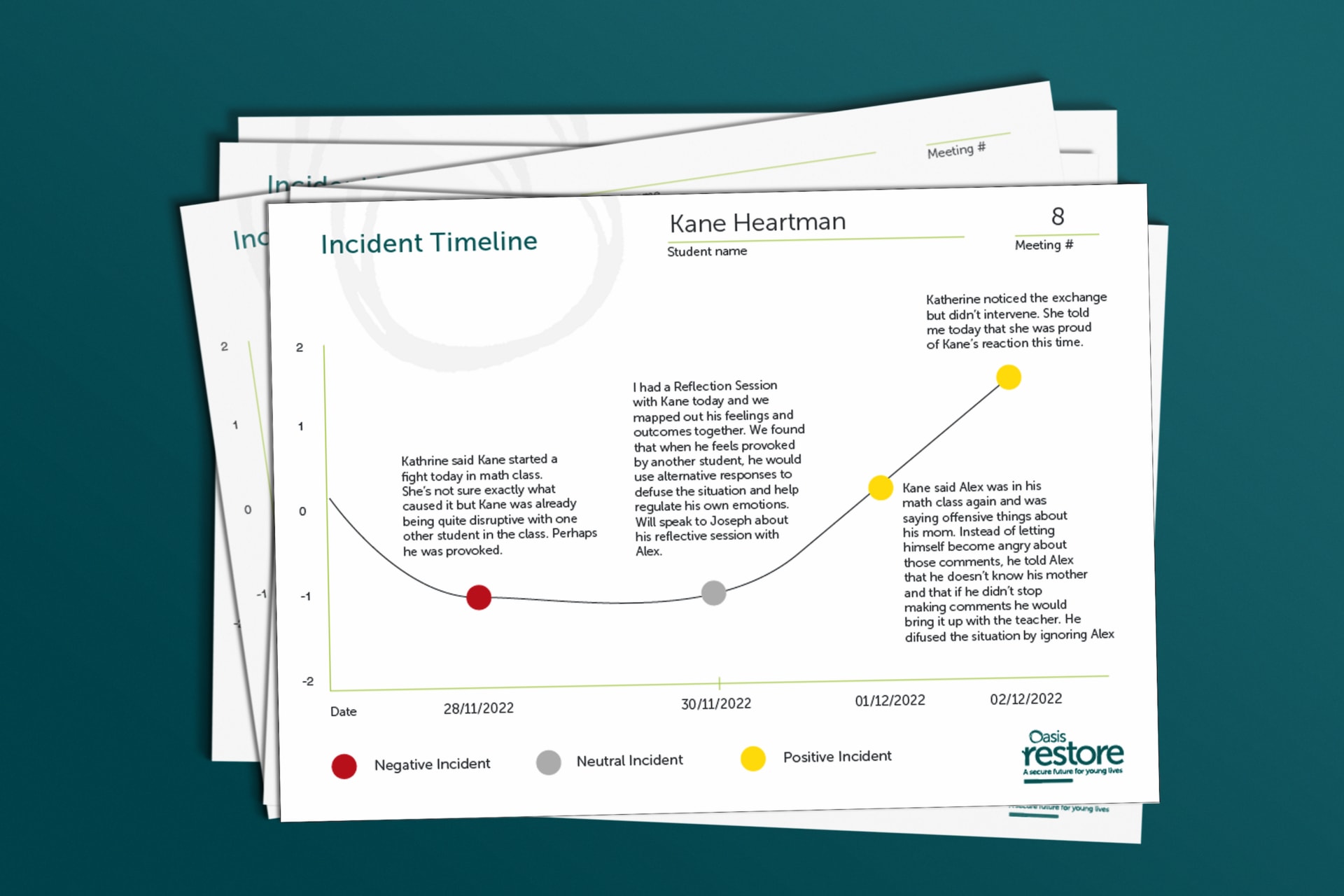INTRODUCTION
In July 2022, the British Parliament passed a bill creating a new secure school, Oasis Restore, for youth offenders between the ages of 16 and 19. The school, set to open in the winter of 2023 in Medway, Kent, will employ a team from Oasis Community Learning, a charitable organisation that educates children at risk of expulsion.
Oasis Restore will utilise the principles of Restorative Justice, which focuses on addressing the needs of both victims and offenders through meetings and dialogue, instead of a traditional retributive approach. However, the school faces the challenge of gaining students’ trust who may arrive with a negative attitude towards authority. Though Oasis Restore already plans on giving students group therapy and has in-house psychologists, we believe the needs and traumas of the incoming children are more complex than Oasis has currently prepared for.
PROBLEM STATEMENT
How might we help the students have a consistent, healthy relationship with a positive model figure that is nurtured throughout their time in the secure school?
NEW ROLE - SHARED EXPERIENCE MENTOR
The Shared Experience Mentor (SEM) program is designed to provide each child with a dedicated and trustworthy adult role model committed to supporting and advocating for them. SEMs will be responsible for a small group of students, eating meals with them and meeting each of them personally once a week, and will work closely with their teachers to ensure that each child's unique needs are met. They will have access to each child's sensory profile and previous records, and will use this information to help the teacher tailor lesson plans and activities to the child's needs.
WHY IS THIS IMPORTANT?
Many children who come to Oasis have experienced significant trauma, such as neglect or abuse, and may have difficulty trusting adults and authority figures. The Shared Experience Mentor (SEM) plays a crucial role in helping these children feel safe and supported as they adjust to their new surroundings.
The SEM will work closely with each child to provide the individualised attention and care they may not have received in their families. Through building trust and connecting, the SEM will help the child work through past traumas and feel more secure in their new environment. The SEM will provide a safe haven of support.
SIGNIFICANCE
The SEM is a compassionate link, bringing together Oasis's caring efforts and the child's openness to growth.
ARTEFACTS
Download the pdf to see more.
IMPACT
We are not just introducing a new role, we are changing the organisational dynamics of Oasis. Because the SEM will understand the child, the other staff can leverage this understanding and provide better support. By working together, the whole will be greater than the sum of its parts. In the future, we envision a whole network of people who leave the secure school and come together to form one body.










